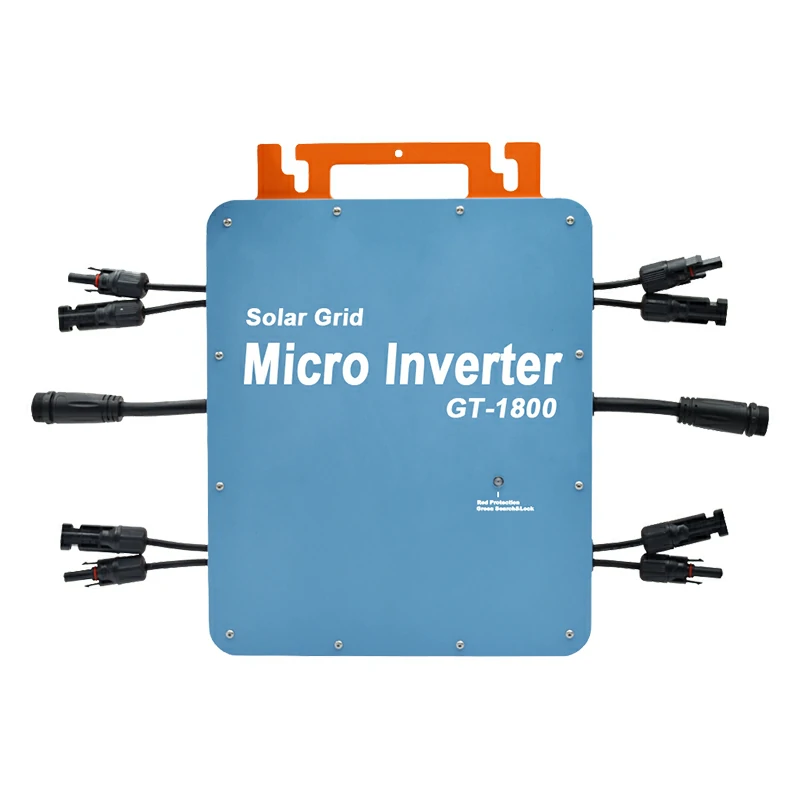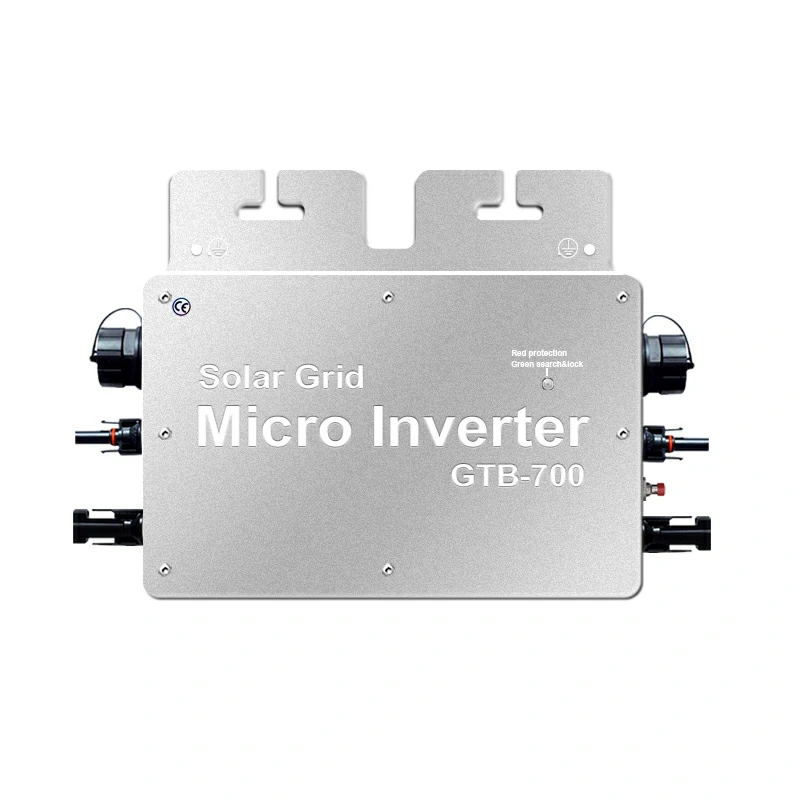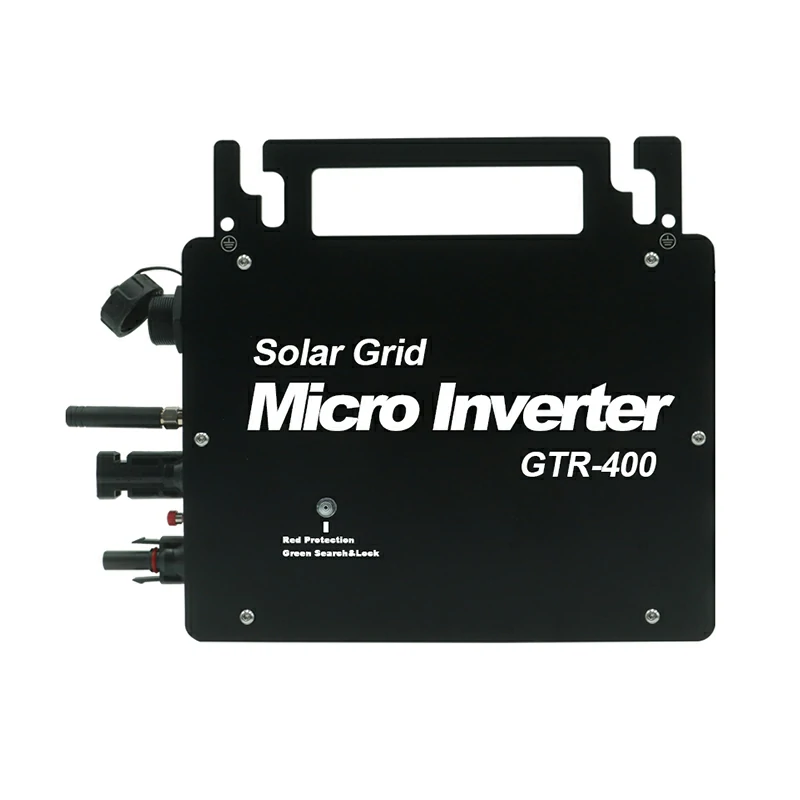The conversion of the direct current (DC) produced by solar panels into alternating current (AC) that may be used by home appliances or fed into the electrical system primarily depends on solar inverters. Standard (off-grid) inverters and grid-tied (or grid-connected) inverters are the main categories in solar energy systems. This article explains why grid-tied solar inverters are regarded as better than ordinary inverters by examining their benefits.

Performance and Economy
Grid-tied solar inverters are renowned for their excellent efficiency and performance. While regular inverters usually fall between 85% and 90%, these inverters frequently reach conversion efficiency above 95%. Furthermore, grid-tied inverters maximize solar panel power output even in variable weather circumstances by using cutting-edge maximum power point tracking (MPPT) technology.

Performance and Economy Comparison
| Feature | Grid-Tied Inverters | Standard Inverters |
| Conversion Efficiency | 95-98% | 85-90% |
| MPPT Technology | Advanced | Basic |
| Weather Performance | Consistent | Variable |
Cost Advantages
Participating in net metering, which lets households sell extra electricity back to the grid, is one of the grid-tied inverters’ main benefits. This capability lowers electricity costs and increases return on investment (ROI) for solar power systems.
Cost Advantages Comparison
| Feature | Grid-Tied Inverters | Standard Inverters |
| Net Metering | Yes | No |
| Electricity Bill Reduction | Significant | Limited |
| ROI | Higher | Lower |
Scalability & Integration
Grid-tied solar systems integrate very well with the current electricity networks and are, therefore, entirely scalable. Compared to typical systems, expansion is simple and economical. Inverters linked to the grid can be seamlessly upgraded with future energy storage technologies.
Scalability & Integration Comparison
| Feature | Grid-Tied Inverters | Standard Inverters |
| Grid Integration | Seamless | Not Applicable |
| System Expansion | Easy and Cost-effective | Complex and Costly |
| Energy Storage Compatibility | High | Limited |
Guarantee and Upkeep
The advanced technology used in grid-tied inverters increases their lifespan and dependability. They generally last longer and need less maintenance than off-grid inverters, guaranteeing a steady energy supply with less downtime.
Guarantee and Upkeep Comparison
| Feature | Grid-Tied Inverters | Standard Inverters |
| Reliability | High | Moderate |
| Lifespan | Longer | Shorter |
| Maintenance Requirements | Low | High |
Compliance & Safety
Safety is a crucial consideration in grid-tied inverter design. Built-in protections on these inverters stop islanding, protecting utility personnel from harm during grid failures. With cutting-edge monitoring and diagnostic technologies, they also meet strict grid rules and requirements.
Compliance & Safety Comparison
| Feature | Grid-Tied Inverters | Standard Inverters |
| Anti-Islanding Protection | Yes | No |
| Grid Regulation Compliance | High | Not Required |
| Monitoring Systems | Advanced | Basic |
Impact on Environment
Grid-tied solar inverters greatly enhance environmental sustainability. They lower carbon footprints and encourage renewable energy use by returning extra electricity to the grid. This beneficial effect on the environment fits perfectly with worldwide sustainable energy programs.
Impact on Environment Comparison
| Feature | Grid-Tied Inverters | Standard Inverters |
| Grid Stability | Enhanced | Not Applicable |
| Renewable Energy Promotion | High | Moderate |
| Carbon Footprint Reduction | Significant | Limited |
Case Studies & Illustrations
Examples from everyday life show how grid-tied solar inverters are beneficial. Within the first year of installation, a home project in California, for example, reported a 30% drop in electricity expenses. According to comparative studies, grid-tied systems routinely beat off-grid systems in terms of efficiency and cost savings.
Higher efficiency, better economic benefits, more system flexibility, increased dependability, better safety features, and an excellent environmental impact are just a few of the many benefits of grid-tied solar inverters over ordinary inverters. Given these advantages, grid-tied systems are an attractive option for companies and families considering solar energy investments. Smart grid integration is where solar energy is headed. Hence, grid-tied inverters are the best choice for contemporary solar power systems. grid-tied systems a compelling choice for homeowners and businesses looking to invest in solar energy. The future of solar energy lies in smart integration with the grid, making grid-tied inverters the superior option for modern solar power systems.




